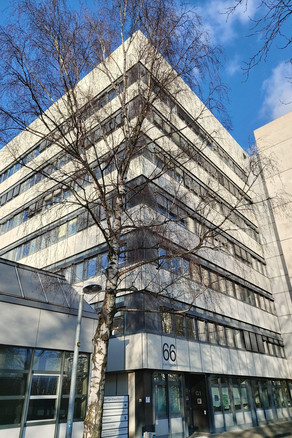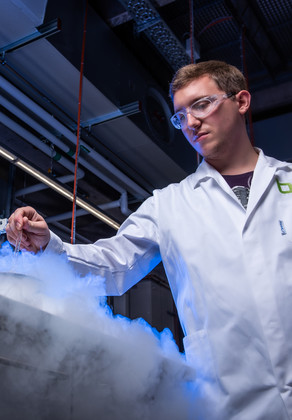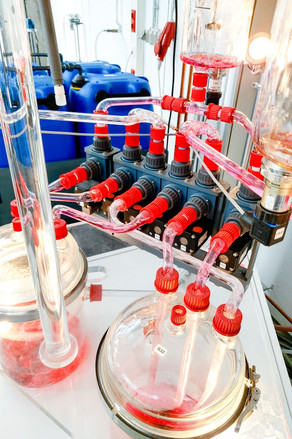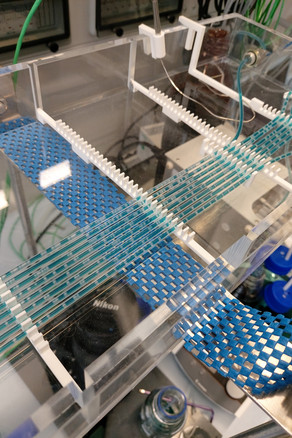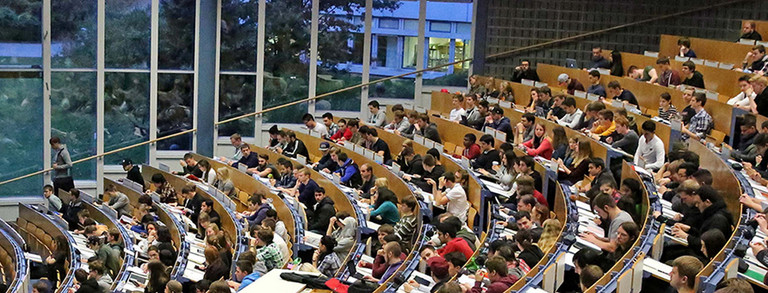Biochemical Engineering
In the Bachelor's programme, in addition to a general introduction to biotechnology, the necessary basics of mathematics, physics, inorganic, organic and biochemistry, technical mechanics, materials science, thermodynamics, fluid mechanics and microbiology/genetic engineering are taught.
This is followed by courses on the bioengineering-specific subject areas, e.g. process engineering, bioreaction technology, biomaterials, apparatus for biotechnological processes, process dynamics and control, process design, as well as in-depth courses that can be selected according to inclination.
The theoretically acquired knowledge is consolidated in practical courses and practically applied in group work within the framework of a plant design. After writing the Bachelor's thesis, the professionally qualifying Bachelor's degree is completed and enables the student to work in an industrial company.
In the Master's programme, knowledge is deepened in the areas of analytics, molecular biotechnology and bioreaction technology. Another focus is on bioprocess development and industrial biotechnology. Similar to the Bachelor's programme, different specialisation courses are chosen depending on the interests. Depending on personal inclination, the Master's thesis can be theoretically or practically oriented.
Details on the individual courses can be found in the module handbook.
- Study program brochure BIW PDF (1 MB)

